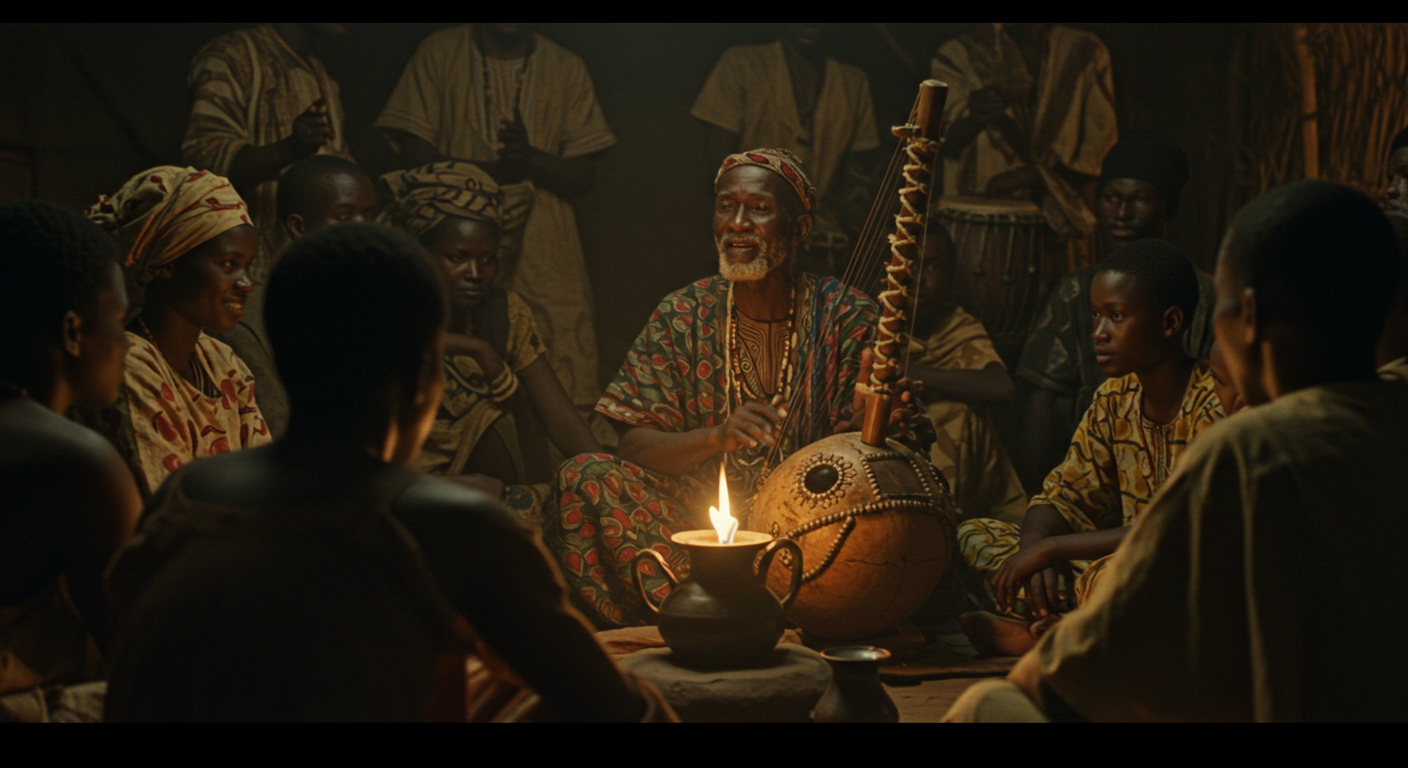Long before written records, Africa’s history, genealogy, philosophy, and social code were preserved through the voices of griots. These poet-historians, musicians, and storytellers have shaped the cultural memory of entire empires — and continue to influence African music and education today.
Who Were the Griots?
Griots (or jeli in Mali, igwe in parts of Nigeria) were hereditary oral historians attached to royal courts in West Africa. They composed praise songs, recorded dynastic histories, and advised kings through allegory and song.
Instruments of the Griot:
Kora – A 21-string lute-harp, central to Mandinka musical storytelling.
Balafon – A wooden xylophone for rhythmic storytelling.
Ngoni – A forerunner of the banjo.
Modern-Day Griots:
Toumani Diabaté (Mali) – A world-renowned kora player who descends from 70 generations of griots.
Sona Jobarteh (Gambia) – One of the first female kora players to break into this traditionally male role.
Alogte Oho (Ghana) – Channels traditional Frafra storytelling through gospel-infused Afrobeat.
Today’s rappers, spoken word artists, and even political analysts carry the griot’s DNA — weaving tales, warning leaders, and reminding Africa of who she is.



